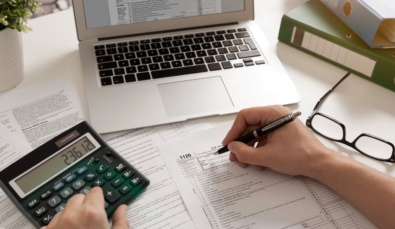As the 2024 end of tax year approaches, the Australian Tax Office (ATO) is sharpening its focus on several key areas to ensure compliance and integrity within the tax system. This year, the ATO is particularly vigilant about claims for rental property deductions, work-related expenses, and undeclared income from the sharing economy. If you’re preparing for tax time, understanding and ensuring you’re fully compliant in these areas can help ensure you get your lodgment right the first time. Let’s take a look at the ATO focus areas for 2024 in a bit more detail.
ATO Crackdown: 3 Key Areas To Get Right For Tax Time 2024
1. Rental Property Deductions
Investment properties were a firm focus at tax time in 2023 and the ATO continues to scrutinise rental property deductions closely, ensuring that claims are legitimate and accurately reflect expenses incurred. Recent audits from the tax office indicate that 90% of rental property owners are getting their tax returns wrong.
According to ATO Assistant Commissioner, Robert Thomson: “People aren’t apportioning correctly between interest relating to private use and the interest that relates to the income they’re generating from their investment property.”
Common areas where taxpayers might encounter issues include:
- Repairs vs. Improvements: It is crucial to differentiate between repairs and improvements. Repairs, which restore an item to its original condition, are immediately deductible. In contrast, improvements, which enhance the property’s value, must be depreciated over time.
- Interest Deductions: Only the interest on loans used to purchase or renovate a rental property is deductible. Loans used for personal expenses or to purchase a property that is not rented out cannot be claimed.
- Private Use: Expenses related to periods when the property is used for private purposes are not deductible. It is essential to apportion expenses accurately if the property is only rented out part of the year or used by the owner at any time.
The ATO employs sophisticated data-matching techniques and collaborations with financial institutions to identify discrepancies and ensure compliance. Rental property owners should maintain detailed records and seek professional advice to ensure their claims are accurate and justifiable.
2. Work-Related Expenses
Work-related expenses are another area under the ATO’s microscope. This was another key focus from last year that remains a priority for the ATO. Changes were made last year to the fixed rate method of calculating a working from home deduction and taxpayers were required to keep more detailed documentation. However, this is the first full year of these changes being in effect so the expectation is that you must have comprehensive records to substantiate your claims.
“Copying and pasting your working from home claim from last year may be tempting, but this will likely mean we will be contacting you for a ‘please explain’. Your deductions will be disallowed if you’re not eligible or you don’t keep the right records.” Mr Thomson said.
To avoid issues, taxpayers should adhere to the following guidelines:
- Substantiation: Ensure all claims are supported by receipts and detailed records. Estimates or round figures can raise red flags.
- Direct Connection: There must be a direct connection between the expense and earning income. Personal or unrelated expenses are not deductible.
- Occupation Costs: Deductions for costs like rent, rates or mortgage interest are not allowable unless you’re running a business from home.
Accurate record-keeping and adherence to ATO guidelines are essential to ensure compliance and avoid audits or penalties.
3. Undeclared Income from the Sharing Economy
The rise of the sharing economy has introduced new challenges for tax compliance. Platforms like Airbnb, Uber, and various freelancing sites have made it easier for individuals to earn income that may go undeclared.
The ATO is particularly focused on:
- Rental Income: Income earned from short-term rental platforms must be declared. This includes not only the rent received but also any related fees and charges.
- Ride-Sharing and Delivery Services: Income earned from ride-sharing, food delivery, or other gig economy jobs must be reported. This includes tips and bonuses in addition to standard earnings.
- Online Freelancing: Earnings from online freelancing platforms must be declared. This includes income from both domestic and international clients.
The ATO collaborates with sharing economy platforms to access data and identify undeclared income. These sophisticated data matching systems mean that if you decide to not report your income from these platforms then you are much more likely to trigger a review by the ATO. Participants in the sharing economy should maintain comprehensive records of their earnings and report them accurately to avoid penalties.
The advice is also to not rush to submit your tax return, particularly if you received income from multiple sources. “By lodging in early July, you are doubling your chances of having your tax return flagged as incorrect by the ATO.”
As the ATO intensifies its focus on rental property deductions, work-related expenses, and undeclared income from the sharing economy, it is more important than ever for taxpayers to be diligent and compliant. By understanding these key areas and maintaining accurate records, taxpayers can navigate their obligations confidently and avoid the risk of audits and penalties. If in doubt, seeking professional advice from the tax experts at MGI can provide the necessary guidance to ensure compliance and peace of mind in the 2024 tax year.
Check out our recent blog on Personal Services Income (PSI) to ensure that you are categorising your business and services correctly.
For more information or personalised advice on your tax obligations, feel free to reach out to the experts at MGI South Qld. We’re here to help you navigate the complexities of the Australian tax system with ease and confidence.
You might also be interested in our most recent blog on the ATO small business focus areas for Q4 of the 2024/25 financial year.









